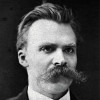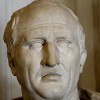“ Our appetite is irresolute and fickle; it can neither keep nor enjoy anything with a good grace ”
Michel de Montaigne, The Essays of Michel de Montaigne (1580). copy citation
| Author | Michel de Montaigne |
|---|---|
| Source | The Essays of Michel de Montaigne |
| Topic | grace appetite |
| Date | 1580 |
| Language | English |
| Reference | |
| Note | Translated by Charles Cotton |
| Weblink | http://www.gutenberg.org/files/3600/3600-h/3600-h.htm |
Context
““For when he saw that almost all things necessarily required for subsistence, and which may render life comfortable, are already prepared to their hand, that men may abundantly attain wealth, honour, praise, may rejoice in the reputation of their children, yet that, notwithstanding, every one has none the less in his heart and home anxieties and a mind enslaved by wearing complaints, he saw that the vessel itself was in fault, and that all good things which were brought into it from without were spoilt by its own imperfections.”—Lucretius, vi. 9.]
Our appetite is irresolute and fickle; it can neither keep nor enjoy anything with a good grace: and man concluding it to be the fault of the things he is possessed of, fills himself with and feeds upon the idea of things he neither knows nor understands, to which he devotes his hopes and his desires, paying them all reverence and honour, according to the saying of Caesar:”
source



